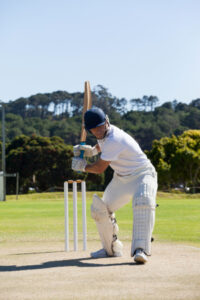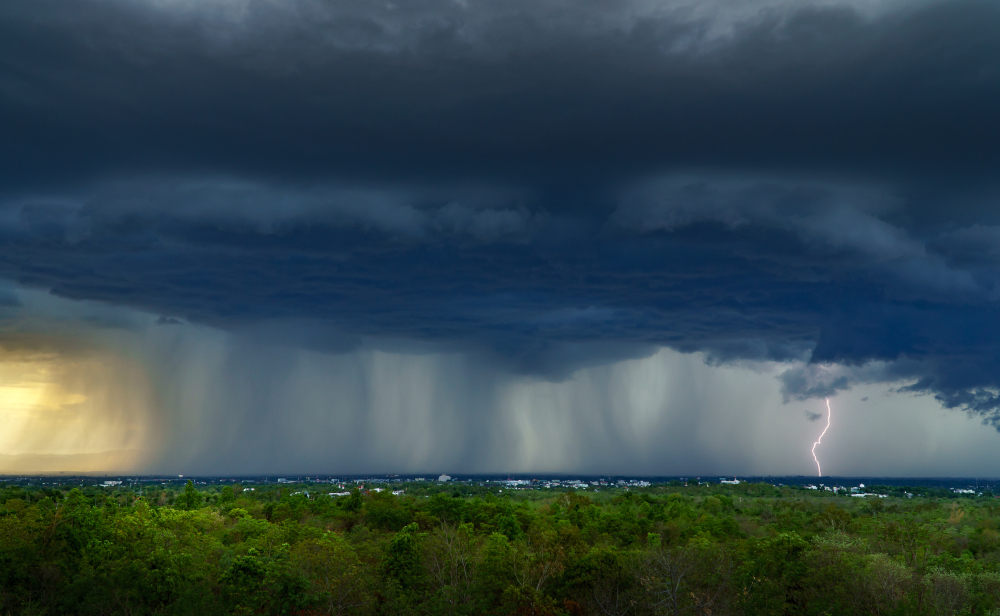Weather plays a crucial role in outdoor sports, influencing everything from player performance to game strategy and final outcomes. In South Africa, where climates range from Cape Town’s windy and wet winters to Durban’s humid summers and Johannesburg’s high-altitude conditions, understanding weather patterns is essential for bettors looking to gain an edge. Wind, rain, and extreme temperatures can disrupt play, favor certain teams, and affect scoring patterns, making weather analysis a critical factor in sports betting markets. Unlike fixed variables such as team form and player statistics, weather conditions introduce an unpredictable element that sharp bettors actively track before placing wagers.
Professional sports bettors and oddsmakers factor in weather conditions when setting lines, particularly for sports like rugby, football, cricket, and horse racing. For example, Cape Town Stadium is notorious for its swirling coastal winds, which impact kicking accuracy in rugby and long passes in football. Similarly, heavy rains can slow down fast-paced teams in PSL football matches, making lower-scoring games more likely. In cricket, overcast conditions at venues like Newlands tend to favor swing bowlers, while hot, dry weather in places like the Wanderers in Johannesburg creates pitches that crack and assist spin bowlers. Bettors who understand these nuances can identify market inefficiencies and adjust their strategies accordingly.
South Africa’s weather impact on betting is particularly noticeable in live, in-play markets, where odds fluctuate rapidly based on real-time weather changes. If unexpected rain disrupts a high-scoring rugby game, totals betting (over/under markets) may shift dramatically. Similarly, horse racing track conditions change when rain turns a firm track into a heavy one, benefiting certain horses over others. With global bookmakers incorporating weather data into their models, informed bettors in Cape Town and beyond use detailed forecasts, wind patterns, and temperature projections to gain an edge over casual punters. Understanding how weather influences betting odds is no longer just a niche strategy—it’s a fundamental aspect of successful sports wagering.
Wind: The Game-Changer in Open-Air Sports
Wind is one of the most unpredictable and disruptive factors in outdoor sports, often turning a well-planned game into a tactical battle. In rugby, football, and golf, strong gusts can alter ball trajectories, affect passing accuracy, and force teams to adjust their strategies mid-game. Nowhere is this more evident than in Cape Town, where the notorious South-Easter wind, known as the “Cape Doctor,” regularly impacts matches at Cape Town Stadium. The swirling gusts inside the stadium make it difficult for rugby fly-halves and football goalkeepers to judge long kicks, often leading to unexpected errors and lower-scoring matches.
Rugby is particularly affected by wind, as kicking plays a crucial role in gaining territory and converting points. Strong crosswinds can cause penalty kicks and conversions to drift wide, while upfield winds can give teams a clear advantage in territory-based play. At stadiums like Loftus Versfeld in Pretoria, where altitude already affects ball flight, adding wind into the equation can make high balls harder to control. In football, teams that rely on long passes and aerial duels struggle in windy conditions, often leading to more ground-based play and fewer goals. Bookmakers adjust odds accordingly, favoring teams that can adapt to these challenges.
Golf is another sport where wind is a defining factor, particularly on links-style courses like those found along South Africa’s coast. At the Royal Cape Golf Club, a strong headwind can force players to use lower ball flights, while unpredictable crosswinds demand precise shot shaping. Bettors tracking wind speeds can predict higher-than-usual scores on exposed courses, where even the best players struggle with club selection. In sports betting, wind is one of the most overlooked but crucial variables, and those who factor it into their wagers often gain an edge over casual bettors who rely solely on form and statistics.
Rain & Wet Conditions: Slippery Surfaces and Slow Play
Rain transforms a match from a test of skill to a battle of endurance and adaptability. In rugby, wet conditions make scrums unstable, increasing handling errors and forcing teams to rely on short, controlled phases rather than expansive play. Knock-ons and fumbles rise sharply in wet weather, leading to more stoppages and tactical kicking. Forwards-dominant teams with strong set pieces tend to have the upper hand, as wet conditions neutralize the speed of backline attacks. Stadiums like Kings Park in Durban, which frequently experiences summer rainfall, often see teams opting for territorial kicking over risky open play when the pitch becomes waterlogged.
Football matches slow down dramatically in heavy rain, particularly on natural grass pitches where standing water disrupts passing lanes and dribbling. Quick, counter-attacking teams struggle to execute their usual tactics, while possession-based teams capable of short, precise passes often fare better. Players also tire faster due to the heavier surface, leading to more defensive play and lower goal-scoring averages. Bettors tracking weather forecasts know that rain leads to fewer goals and higher odds on draws, especially in leagues like the PSL, where some stadiums lack advanced drainage systems to maintain ideal playing conditions.
Cricket is one of the most heavily affected sports in wet conditions, as moisture alters pitch behavior and ball movement. Overcast skies and damp pitches help fast bowlers generate extra swing and seam movement, making batting far more difficult. At Newlands in Cape Town, humid and rainy conditions often favor swing bowlers, while drier pitches in Johannesburg’s Wanderers favor high-scoring games. Betting markets adjust by lowering total runs predictions when rain threatens, knowing that Duckworth-Lewis calculations or match interruptions increase volatility. Those who understand how rain impacts each sport gain a significant advantage when betting on unpredictable conditions.
Temperature Extremes: Fatigue, Endurance & Altitude Effects
High temperatures push athletes to their physical limits, draining stamina and increasing the risk of heat exhaustion. In Durban, where summer temperatures frequently exceed 30°C (86°F) with high humidity, players struggle to maintain intensity for a full match. Rugby and football teams often slow the pace, relying on set-piece play and water breaks to manage fatigue. Dehydration leads to sloppy decision-making, and defenders tire faster, creating late-game scoring opportunities. Bookmakers often adjust second-half odds in extreme heat, knowing that teams with stronger fitness levels or deeper benches have an advantage.
Cold weather, though less common in South Africa, changes how games unfold. In winter matches at Loftus Versfeld (Pretoria) or Free State Stadium (Bloemfontein), temperatures can drop below 5°C (41°F), making muscles tighten and reducing explosive speed. Rugby forwards struggle to bind properly in scrums, and football players take longer to warm up, leading to slower starts and fewer early goals. Studies show that in colder conditions, athletes burn more calories just to stay warm, increasing fatigue over time. Sportsbooks factor this in by offering higher odds on unders for total points and goals in extreme cold.
Johannesburg’s 1,753m (5,751 ft) altitude presents a unique challenge for endurance sports. Oxygen levels are lower, meaning teams from sea-level cities like Cape Town and Durban often struggle in their first 30 minutes at high-altitude venues. Research on South African rugby shows that visiting teams at altitude concede more points in the final quarter, as fatigue sets in quicker. In cricket, high-altitude venues like Wanderers produce higher-scoring matches, as the thinner air allows the ball to travel further. Smart bettors consider these physiological effects when placing bets, especially on fatigue-driven outcomes in the second half of matches.
Cricket: Pitch Behavior & Weather Conditions
Humidity and overcast skies create ideal conditions for swing bowling, as moisture in the air helps the ball move unpredictably. Fast bowlers thrive in these conditions, especially at venues like Newlands in Cape Town, where coastal weather can generate cloud cover and increased humidity. The ball swings more during the first session, making batting difficult early in a Test match. Bettors who track weather reports know that cloudy conditions at seam-friendly venues often lead to lower first-innings totals and higher wicket counts for fast bowlers.
In contrast, dry and hot conditions cause pitches to crack, favoring spin bowlers as the match progresses. At high-altitude grounds like Wanderers in Johannesburg, the thin air and harsh sun bake the surface, creating extra bounce and turn for spinners on deteriorating pitches. In multi-day matches, pitches in Pretoria (Centurion) and Bloemfontein often become dustier, making them harder to bat on by the fourth or fifth day. Smart bettors recognize that Test matches in hot, dry conditions tend to produce stronger fourth-innings performances from spinners, influencing total runs markets and wicket-taker bets.
Each South African venue has distinct characteristics shaped by climate. Newlands favors swing bowlers, while Wanderers benefits pace bowlers due to extra bounce. Grounds like St George’s Park in Gqeberha offer lower, slower wickets that suit gritty batting performances and spinners in later innings. Bettors who understand these venue-specific trends, along with how weather impacts pitch conditions, gain a major advantage in cricket betting markets. Adjusting predictions based on real-time weather data can help identify unexpected betting value before bookmakers adjust their odds.
Horse Racing: Track Conditions & Weather Influence
Rain dramatically alters track conditions, affecting both turf and dirt surfaces in unpredictable ways. On turf tracks, excessive moisture creates softer ground, slowing down horses that rely on speed and favoring stamina-driven runners. In contrast, dirt tracks become slick and muddy, often leading to erratic performances and higher instances of horses struggling with footing. At tracks like Kenilworth in Cape Town, bettors who monitor rainfall know that horses with proven wet-track form hold a significant advantage in heavy going.
Some horses, known as mud-runners, excel in wet conditions due to their stride patterns and hoof structure. Trainers and jockeys familiar with rain-affected racing adjust tactics accordingly, positioning their horses off the rail where the track is less churned up. Bettors who research past performances in wet conditions often find value in overlooked horses that struggle on dry tracks but thrive in soft or heavy going. Horses with higher knee action and experience racing on damp surfaces tend to perform better when conditions deteriorate.
Temperature and wind also play a key role in horse endurance and race speed. In hot weather, horses dehydrate faster, leading to weaker late-race performances, particularly in longer-distance events. Conversely, cooler temperatures help maintain stamina, often benefiting horses with strong finishing speed. Wind can significantly alter race tactics, as headwinds force front-runners to expend more energy, while tailwinds assist closers in the final stretch. At Turffontein in Johannesburg, where altitude already impacts breathing efficiency, factoring in temperature and wind speed can be the difference between a winning bet and a costly oversight.
Weather-Based Betting Strategies: Finding an Edge
Sharp bettors treat weather forecasts as key data points, analyzing wind speed, temperature, and precipitation before placing bets. Knowing that rain slows down passing games in football, wind disrupts long-range kicking in rugby, or overcast conditions assist swing bowlers in cricket provides an edge over casual punters. Many professional bettors monitor real-time weather updates and satellite forecasts, adjusting their bets as conditions shift. In South Africa, where weather patterns vary dramatically between coastal and inland venues, understanding local climate trends can uncover mispriced odds before bookmakers react.
Extreme weather often results in lower-scoring matches, especially in sports where ball movement and precision are crucial. In rugby, heavy rain makes handling errors more frequent, leading to fewer tries and more penalty-based scoring. In football, wet conditions slow play, reducing the likelihood of high-scoring matches. Betting on unders in total points or goals markets before adverse weather is fully factored into the odds can be a profitable strategy. Similarly, in cricket, wet outfields reduce boundary-scoring rates, making totals betting more predictable when rain is expected.
In-play betting is where sharp bettors can capitalize the most. Unexpected wind gusts can ruin a golfer’s shot, sudden rain delays can impact cricket match dynamics, and extreme heat can wear down teams faster than expected. Bookmakers often struggle to adjust odds in real-time when weather shifts mid-game, creating opportunities for bettors who react faster. Watching for momentum swings due to weather disruptions and adjusting bets accordingly allows savvy bettors to gain a significant edge, especially in live betting markets where every second counts.
Weather is one of the most overlooked yet critical factors in sports betting. Wind, rain, extreme temperatures, and altitude can alter game dynamics, influence player performance, and shift betting markets in ways that aren’t always immediately obvious. Bettors who factor in weather conditions can anticipate changes in scoring patterns, playing styles, and endurance levels, giving them an advantage over those who rely solely on team statistics and past performances.
In South Africa, where climate conditions vary significantly between coastal, inland, and high-altitude venues, understanding local weather patterns provides an additional edge. From the swirling winds of Cape Town Stadium to the dry heat of Johannesburg affecting endurance sports, knowing how different environments impact play allows bettors to make smarter, more calculated decisions. Adjusting bets based on venue-specific weather trends can reveal profitable opportunities before oddsmakers fully account for them.
Tracking real-time forecasts is essential for staying ahead of sudden weather changes that can disrupt pre-game predictions. Sharp bettors regularly monitor wind speeds, rainfall probabilities, and temperature shifts, using this data to refine their strategies. Whether placing pre-match bets or reacting to live in-game conditions, understanding how weather shapes sports outcomes is not just an advantage—it’s a necessity for serious bettors looking to maximize their success.
How does wind affect betting odds in South African sports?
Wind impacts different sports in various ways. In rugby, strong winds make kicking difficult, leading to fewer successful conversions and penalty kicks. In football, wind disrupts long passes and goal kicks, often leading to lower-scoring matches. Bookmakers adjust odds accordingly, but sharp bettors look for value in betting on lower total points and teams that rely less on kicking.
Which South African stadiums are most affected by wind?
Cape Town Stadium is known for its strong swirling winds, often making accurate kicking a challenge in rugby and football. Other affected stadiums include Nelson Mandela Bay Stadium in Gqeberha and Moses Mabhida Stadium in Durban, both of which experience coastal wind disruptions.
How does rain impact rugby and football betting?
Rain makes fields slippery, leading to more handling errors and fewer attacking plays in rugby. Scrums become harder to control, and teams rely more on kicking and forward play. In football, rain slows down passing and increases the likelihood of low-scoring games due to reduced shooting accuracy and ball control.
Does altitude impact betting outcomes in South African sports?
Yes, altitude significantly affects endurance sports. At 1,753m above sea level, Johannesburg (Ellis Park, FNB Stadium, Wanderers Cricket Ground) puts sea-level teams at a disadvantage due to lower oxygen levels. This leads to increased fatigue, affecting late-game performance and scoring trends. Bettors often favor teams accustomed to playing at high altitude in second-half betting markets.
Which South African cities have the highest-altitude sports venues?
Johannesburg, Pretoria, and Bloemfontein have the highest-altitude stadiums, including Loftus Versfeld (1,350m), Free State Stadium (1,395m), and FNB Stadium (1,753m). Teams traveling from coastal regions like Cape Town and Durban often struggle with endurance in these conditions.
How do bookmakers adjust odds based on weather conditions?
Bookmakers monitor weather forecasts and adjust odds for total points, goal scoring, and player performance. For example, heavy rain may lower the over/under total in football or rugby, while strong wind may lead to longer odds on successful drop goals and penalty kicks.
Is cricket betting affected by weather in South Africa?
Yes, cricket is heavily influenced by weather. Overcast conditions benefit fast bowlers, while dry and hot weather favors spin bowlers later in Test matches. Rain also leads to Duckworth-Lewis calculations, which can create opportunities for in-play betting on adjusted totals.
Which South African cricket grounds are most affected by weather?
- Newlands (Cape Town): Overcast and humid conditions often favor swing bowlers.
- Wanderers (Johannesburg): High altitude makes the ball travel further, leading to high-scoring matches.
- Kingsmead (Durban): Coastal location makes it prone to rain delays, impacting match outcomes.
How does temperature affect horse racing in South Africa?
Extreme heat leads to fatigue and dehydration in horses, reducing performance in longer races. Cooler temperatures improve stamina, often benefiting late-race runners. Rain softens turf tracks, favoring horses with experience in wet conditions.
Why is live betting important when weather conditions change?
Sudden weather changes can shift momentum in a game, impacting scoring patterns and player performance. Live bettors track real-time weather updates and adjust bets accordingly, such as backing a strong kicking team when the wind dies down or betting on lower scores when rain intensifies.
What are the best weather-focused betting strategies?
- Bet the under in football and rugby when rain is expected.
- Favor experienced mud-runners in horse racing when the track is wet.
- Back swing bowlers in cricket during overcast conditions.
- Bet on high-scoring matches in high-altitude cricket stadiums due to thin air.
- Look for second-half fatigue in teams unaccustomed to playing at altitude.
Can bettors use weather forecasts to predict betting value?
Yes, professional bettors track wind speeds, temperature, humidity, and rain forecasts before placing bets. Using weather data to anticipate scoring trends, player fatigue, and tactical shifts provides an edge over the market.


